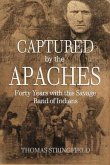"Richard Drake had a long career in the slave trade, describes several slave raids involving Euro-Americans." -Cambridge World History of Slavery (2011)
"Drake described loading a boat so completely that not only was the hold crammed, but 50 slaves were also 'tied around the mast and rails' so that 'every available foot of space had been covered with black flesh.''' - NY Times, Feb. 7, 2003
Arriving in Boston in 1802 at the age of 12, Richard Drake (1790-1857) joins his uncle on a slaving voyage between Benin and Brazil. Thus begins Richard Drake's 50-year career as a slave trader.
Drake's harrowing account of his life as slave trader "Revelations of a Slave Smuggler," was published posthumously in 1860. His account includes many close 'scapes and adventures from run-away slave hunts, gold prospecting in Western Africa, being captured by an African tribe, a journey to the interior of Africa, lion hunting, slave hunting in Africa with a tribe, marriage to an African woman, visits with African kings and princes, slave markets, hurricanes, smuggling slaves into the United States, clipper ships, West Indies trade, emigration to Cuba, bloodhounds, piracy, ship sinkings, becoming captain, slave marts, loss of the Amistad, and his wretched conclusion.
About the source of the slaves for the slave trade, Drake writes:
"There is a war going on between the King of Ashantee and his neighbors, and he is capturing a great many prisoners, which he ships down the river to sell as slaves, or else sends to the mountains to wash out gold. The slaves are here traded for blue cotton gowns, called tobes, coral beads, looking-glasses, and trinkets of brass and copper, as well as for gold dust."
In describing the moment of his capture by an African tribe, Drake writes:
" I was seated under a tree, drinking water from a calabash, when the first shouts and a shower of arrows threw our camp into confusion. Next moment the forest appeared to be alive with a legion of savages. I saw my uncle seize his pistols and sword, just as a ferocious negro, armed with a huge club, was making at me...."
On a later slave ship expedition, when the ship caught fire, he witnessed from his life boat slaves on the burning ship who had escaped from the hold, including one who called out his name who turned out to be his "devoted Yallaba wife." He then realized that "doubtless, it was my own child that I beheld embraced by the poor loving mother. At that moment I forgot Diego Ramos, and my uncle; remembered nothing but that I had once held this poor African wife in my arms, and that she had once preserved my life at the risk of her own. I stretched out my arms, and shouted in the Dahoman tongue, 'Sooluh! Sooluh! Philip will save you!'"
In the end, Drake would repent for his part in the slave trade, writing, "May God forgive me for my crimes, and have mercy on me hereafter; and may my story serve some good purpose in the world I am leaving."
"Drake described loading a boat so completely that not only was the hold crammed, but 50 slaves were also 'tied around the mast and rails' so that 'every available foot of space had been covered with black flesh.''' - NY Times, Feb. 7, 2003
Arriving in Boston in 1802 at the age of 12, Richard Drake (1790-1857) joins his uncle on a slaving voyage between Benin and Brazil. Thus begins Richard Drake's 50-year career as a slave trader.
Drake's harrowing account of his life as slave trader "Revelations of a Slave Smuggler," was published posthumously in 1860. His account includes many close 'scapes and adventures from run-away slave hunts, gold prospecting in Western Africa, being captured by an African tribe, a journey to the interior of Africa, lion hunting, slave hunting in Africa with a tribe, marriage to an African woman, visits with African kings and princes, slave markets, hurricanes, smuggling slaves into the United States, clipper ships, West Indies trade, emigration to Cuba, bloodhounds, piracy, ship sinkings, becoming captain, slave marts, loss of the Amistad, and his wretched conclusion.
About the source of the slaves for the slave trade, Drake writes:
"There is a war going on between the King of Ashantee and his neighbors, and he is capturing a great many prisoners, which he ships down the river to sell as slaves, or else sends to the mountains to wash out gold. The slaves are here traded for blue cotton gowns, called tobes, coral beads, looking-glasses, and trinkets of brass and copper, as well as for gold dust."
In describing the moment of his capture by an African tribe, Drake writes:
" I was seated under a tree, drinking water from a calabash, when the first shouts and a shower of arrows threw our camp into confusion. Next moment the forest appeared to be alive with a legion of savages. I saw my uncle seize his pistols and sword, just as a ferocious negro, armed with a huge club, was making at me...."
On a later slave ship expedition, when the ship caught fire, he witnessed from his life boat slaves on the burning ship who had escaped from the hold, including one who called out his name who turned out to be his "devoted Yallaba wife." He then realized that "doubtless, it was my own child that I beheld embraced by the poor loving mother. At that moment I forgot Diego Ramos, and my uncle; remembered nothing but that I had once held this poor African wife in my arms, and that she had once preserved my life at the risk of her own. I stretched out my arms, and shouted in the Dahoman tongue, 'Sooluh! Sooluh! Philip will save you!'"
In the end, Drake would repent for his part in the slave trade, writing, "May God forgive me for my crimes, and have mercy on me hereafter; and may my story serve some good purpose in the world I am leaving."
Dieser Download kann aus rechtlichen Gründen nur mit Rechnungsadresse in A, D ausgeliefert werden.









